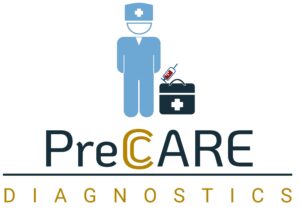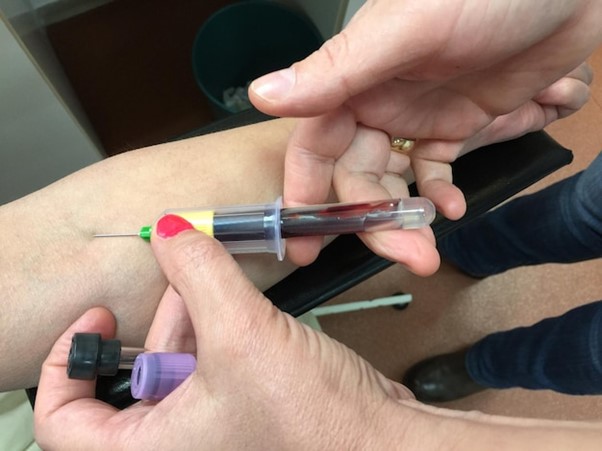The HbA1C (Glycated Hemoglobin) test is a key diagnostic tool that measures your average blood sugar levels in the past 2–3 months, offering a valuable snapshot of your long-term blood sugar control.
Since glucose is the body’s main energy source, it comes from your food.
In people with diabetes, either insufficient insulin production or ineffective insulin use causes glucose levels in the bloodstream to increase, leading to elevated blood sugar levels.
The HbA1C test precisely measures the percentage of hemoglobin—a protein in red blood cells—bound to glucose.
High HbA1C levels are a clear indication of diabetes, and if left untreated, it can result in serious complications, including:
- Heart disease
- Kidney damage
- Nerve problems
What Does the HbA1C Test Help With?
The HbA1C test is vital for:
- Diagnosing Type 2 Diabetes: Elevated blood sugar due to insulin resistance or insufficient insulin production.
- Identifying Prediabetes: Blood sugar levels that are higher than usual but not yet high enough to be considered diabetes. Early detection allows for lifestyle changes to prevent full-blown diabetes.
- Monitoring Blood Sugar Control: For those already diagnosed with diabetes or prediabetes, this test helps track how well their management strategies are working overtime.
When Should You Get Tested?
The CDC recommends the following testing schedule:
- Adults 45 and older: Every 3 years if results are expected.
- With Prediabetes: Every 1–2 years.
- With Diabetes: At least twice a year to assess the effectiveness of treatment.
- Under 45 Years: If you have risk factors like obesity, a family history of diabetes, high blood pressure, or gestational diabetes, you should get tested.
You should also consider testing if you experience symptoms like
- Extreme thirst
- Frequent urination
- Unexplained weight loss
- Fatigue
How Is the Test Done?
The test is a simple procedure that involves drawing a small blood sample from a vein. It requires no special preparation and takes less than five minutes. Side effects are rare but may include mild bruising or slight discomfort.
What Do HbA1C Results Mean?
- Normal: Below 5.7%
- Prediabetes: 5.7% to 6.4%
- Diabetes: 6.5% or higher
If you have elevated levels, further tests such as fasting blood glucose or oral glucose tolerance tests may confirm the diagnosis. For those with diabetes, the HbA1C test helps guide treatment adjustments.
Stay Ahead of Your Health with Precare Diagnostics
With Precare Diagnostics, you can stay on top of your blood sugar levels and make informed decisions about your health. Book your HbA1C test today and take the first step toward better blood sugar control!


